The Sexiest Scientists Alive!
#49 Cheska Burleson

#48 Heather Christofk
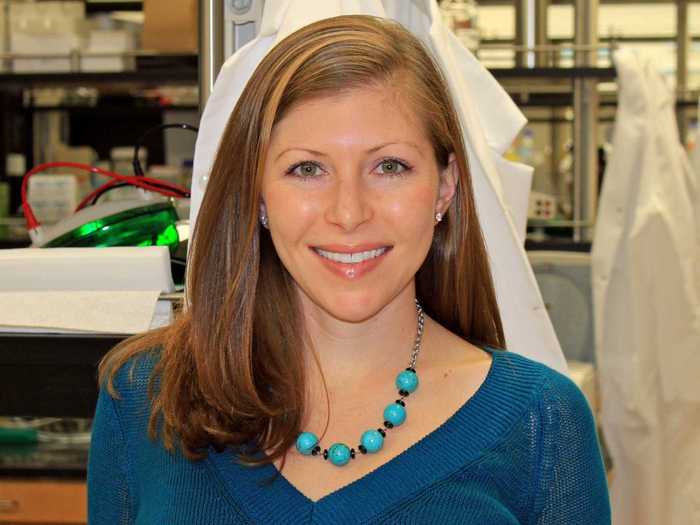
Age: 32
Position: Assistant professor
Institution: University of California, Los Angeles
Education: Ph.D. in cell and developmental biology from Harvard; B.S. in molecular, cell, and developmental biology from UCLA
Nationality: American
Christofk studies the genes and proteins behind the way cancer cells use sugars to live and grow, which is different from how normal cells do. Cancer cells use much more sugar than normal cells, and they do it by changing the way they use these energy sources from the environment.
These insights can give us knowledge that can help fight cancers by helping us design drugs that attack the cancer's "sugar tooth" through these growth pathways. The theory is that if the cells were cut off from sugar, they couldn't grow as fast.
Fun fact: She's a huge college basketball and Boson Bruins fan.
#47 Paul Zak
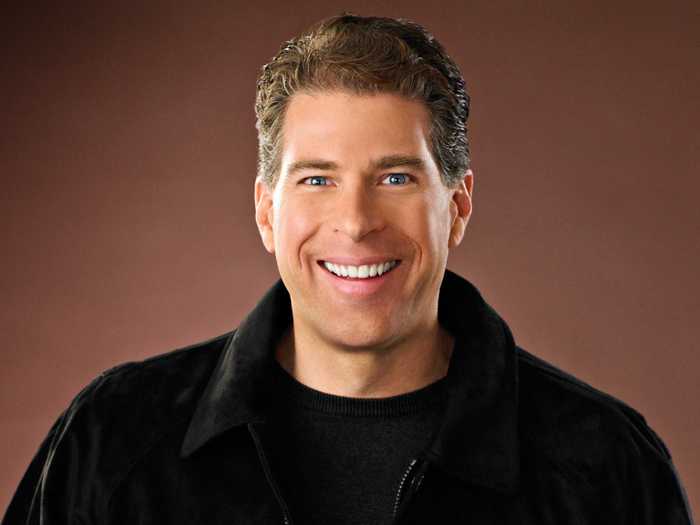
Age: 51
Position: Professor of economics and department chair and founding director of the Center for Neuroeconomics Studies
Institution: Claremont Graduate University
Education: Ph.D in economics from the University of Pennsylvania; B.A. in mathematics and economics from San Diego State University. (He was first in his class!)
Nationality: American
Zak, a neuroscientist and economist, is best known for his research on the hormone oxytocin. Called the "moral molecule," he believes oxytocin is responsible for virtuous human qualities like empathy, generosity, and trust. Hugs and even social networking can trigger the release of oxytocin in the brain, according to Zak. This knowledge can be used to design high-performance teams for business or the military, reduce conflict, and improve the lives of patients with neurologic and psychiatric disorders.
Zak explores oxytocin in his book The Moral Molecule: The Source of Love and Prosperity, published in 2012.
Fun fact: He recently started skydiving.
#46 Eric Berlow
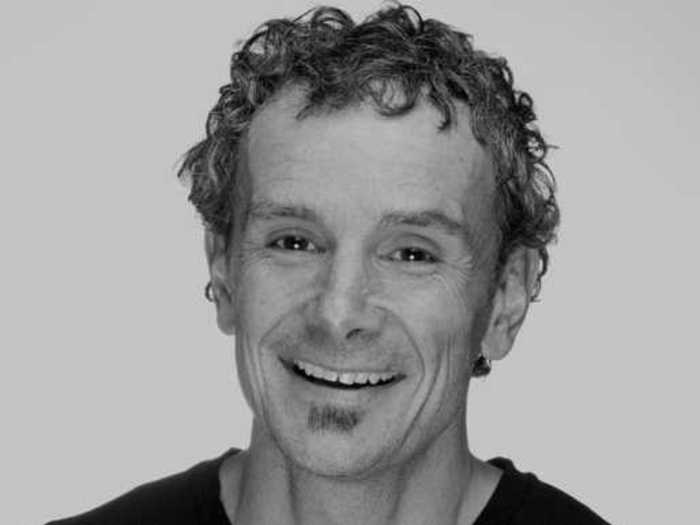
Age: 47
Position: Founder of Vibrant Data labs and a USGS research scientist at Yosemite National Park.
Education: Ph.D in marine ecology from Oregon State University; B.A. from Brown University
Nationality: American and French
Berlow's research analyzes how natural ecosystems, with many species that are all interdependent — for example, a fox might eat mice and rats — and what happens if one of the animals goes extinct.
Studying how ecosystems respond and adapt to changes can help us understand what will happen in the face of species extinction due to human encroachment and climate change. He also applies his research studying networks to things like sustainable eco-tourism in the Arctic and corporate sustainability.
Fun fact: He often laughs in his sleep.
#45 Tyler DeWitt
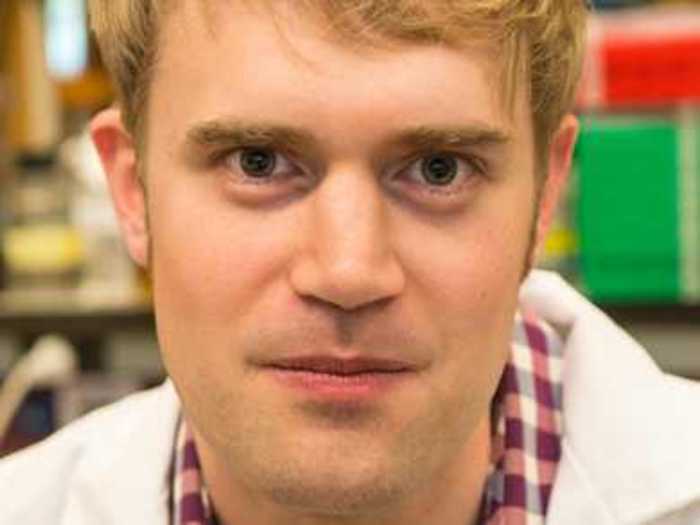
Age: Unknown
Position: Ph.D. student in microbiology at MIT
Institution: MIT
Bacteria hold on to some of their genes as little circles of DNA within their bodies, which are called plasmids. They can share these plasmids with other bacteria, to essentially give them useful genes, called bacterial conjugation.
DeWitt studies how the bacteria do this, which could be useful in stopping outbreaks of bacterial diseases that have become immune to antibacterial drugs, a trait that's passed between bacteria by this conjugation. If we can figure out how they do it, we may be able to stop them from passing on these resistance genes.
Fun fact: DeWitt has taught high school science in the United States and South Korea.
#44 Deva Ramanan
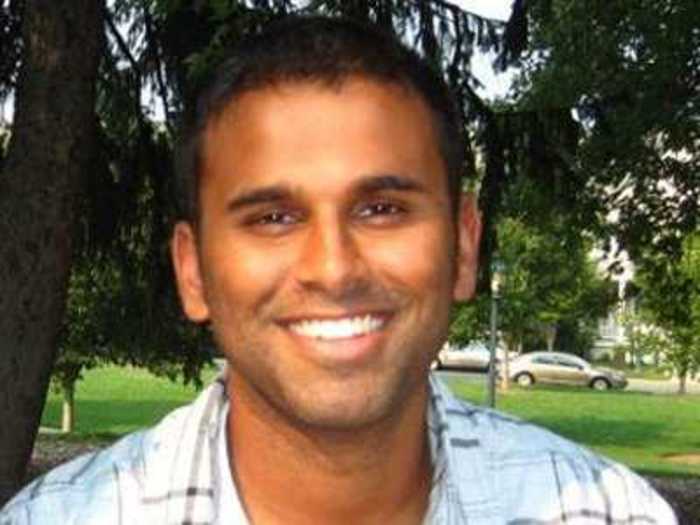
Age: 34
Position: Associate Professor of Computer Science
Institution: University of California at Irvine
Education: Ph.D. in electrical engineering and computer science from UC Berkeley; B.S. in computer engineering from the University of Delaware
Nationality: American
Ramanan trains computers to recognize people, faces, and objects. These kind of algorithms can help screen videos and images for suspected terrorists, or to pick out signs of disease. Though there's been success in the lab, these kind of applications have been incredibly difficult to transfer into real-life.
He received the Outstanding Young Researcher in Image and Vision Computing Award in 2012.
Fun fact: He was ranked as one of Popular Science's "Brilliant 10" last September.
#43 Myriam Afeiche
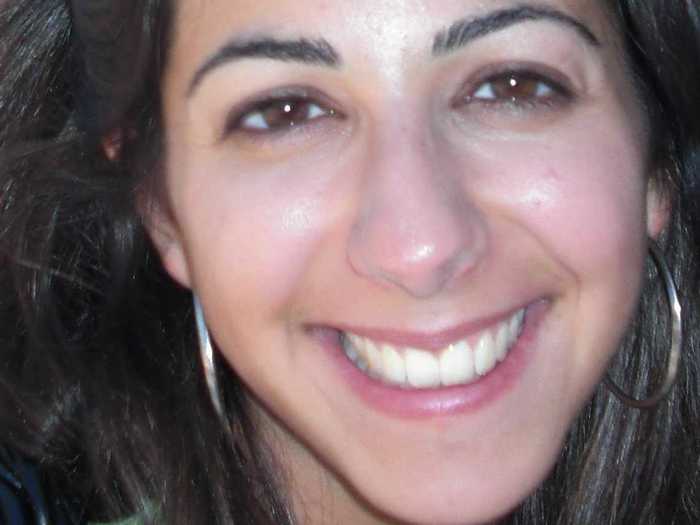
Age: Unknown
Position: Postdoctoral Research Fellow in the department of nutrition
Institution: Harvard School of Public Health
Education: Ph.D in environmental epidemiology and M.Phil in environmental health sciences from the University of Michigan; B.S. in environmental health from the American University of Beirut
Afeiche studies how diet and other environmental factors impact reproductive health of both men and women. One of her latest studies, for example, found that eating too much cheese every day could make men infertile. Another found that inactivity lowers sperm count.
#42 Nicole Basta
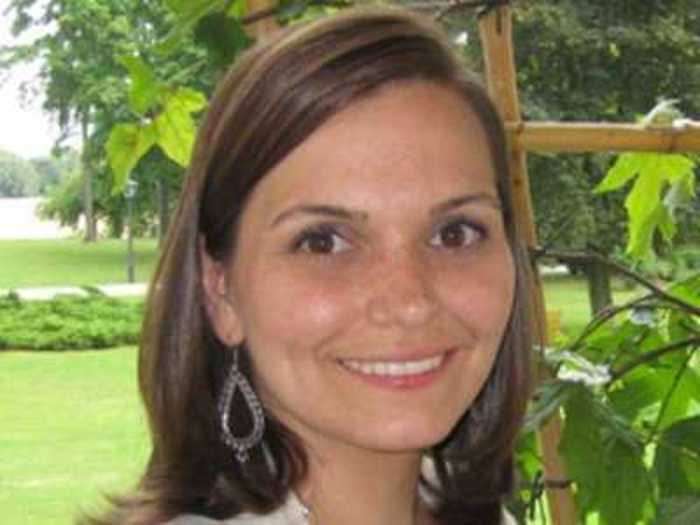
Position: Associate Research Scholar, Department of Ecology and Evolutionary Biology
Institution: Princeton University
Education: Ph.D. in epidemiology from the University of Washington; M.Phil in epidemiology from the University of Cambridge; B.A. in ecology and evolutionary biology from Princeton University
Nationality: American
Basta studies how infectious diseases are passed from host to host (say, by touch, through the blood, or through the air) to determine the best way to make and administer vaccines that best protect against that disease.
She won an early independence award from the National Institutes for Health in 2011 for her research evaluating a new vaccine for bacterial meningitis in Mali.
Fun fact: Basta spent the summer in Panama to study birds for her senior thesis. She also enjoys making jewelry and playing squash in her spare time.
#41 Daniel Kraft
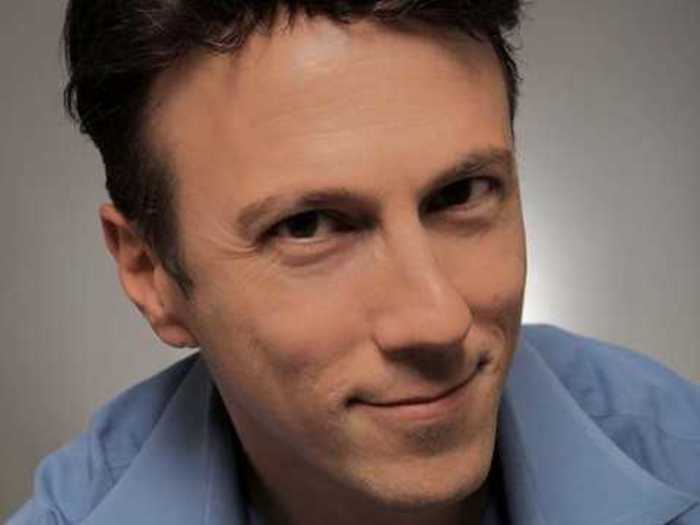
Age: 45
Position: Executive director of the FutureMed program; Faculty chair of medicine at Singularity University; Founder & CEO of IntelliMedicine
Education: M.D. from Stanford University; B.A in biochemistry from Brown
Nationality: American
Kraft, a physician-scientist, explores ways to use developing technology, including new tools, tests, and apps, to improve health and medicine.
He invented a device called the Marrow Miner that quickly harvests bone marrow with less pain for the donor. This makes bone marrow transplants, which treat diseases like leukemia and lymphoma, easier, quicker and less painful for the organ donor, lessening the hurdles to donate.
His other research focuses on stem cells, which could pave the way to regenerative and anti-aging medical applications. He's also worked on health care statistics and data flow optimization.
Fun fact: Kraft has served as a Flight Surgeon and Officer in the Air National Guard with over 100 flying hours in F-15s and F-16s, and was a finalist for NASA-Astronaut Selection.
#40 Marcus Byrne
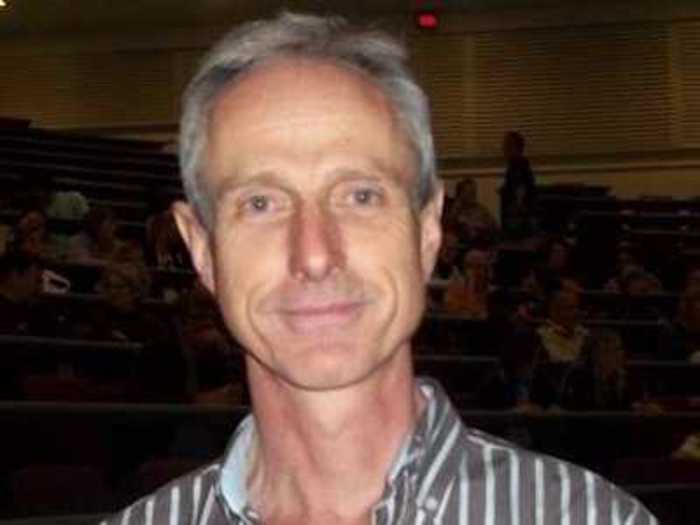
Age: Unknown
Position: Professor of Zoology and Entomology
Institution: The University of Witwatersrand in Johannesburg, South Africa
Education: Ph.D from the University of Witwatersrand
Byrne studies insects, particularly the behavior of dung beetles: how they cool down, walk, and navigate. His research, recently published in the journal "Current Biology," revealed that the dung beetle uses the Milky Way to navigate. Bryne thinks these strategies can improve how humans solve problems.
#39 Daniela Witten
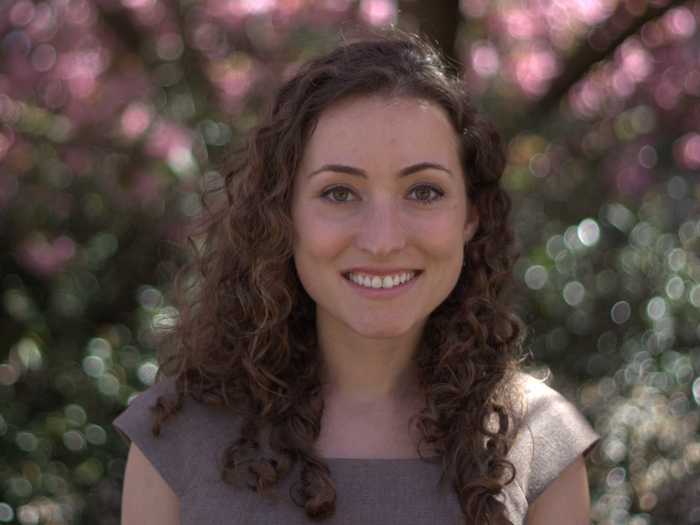
Age: 28
Position: Assistant Professor of Biostatistics
Institution: The University of Washington
Education: Ph.D and M.S. in statistics from Stanford University; B.S. in mathematics and biology from Stanford University
Nationality: American
Witten analyzes "high-dimensional data," or large-scale data sets coming out of biology that has tens of thousands of measurements — for instance genome screening projects. She develops techniques to make sense of these massive data sets, creating tools that can be used to personalize treatment of disease.
Fun fact: Witten became a statistician so she wouldn't have to "pick a single thing to do for the rest of her life" since her work dabbles in many different fields.
#38 Uri Laserson
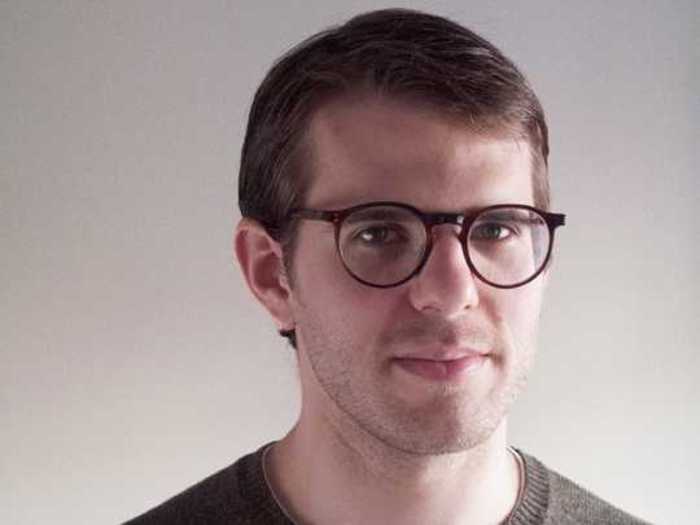
Age: 29
Position: Co-founder of Good Start Genetics and currently a data scientist at Cloudera
Institution: Harvard-MIT Division of Health Sciences and Technology
Education: Ph.D in biomedical engineering and mathematics from MIT; B.A. in mathematics and biology from New York University
Nationality: Israeli and American (since 2006)
The Tel Aviv-born scientist co-founded Good Start Genetics in 2007, a company that screens parents for diseases, like cystic fibrosis, that they could pass on to their children. He uses computers to analyze large data sets of genetics information to understand how a person's genes influence their health and diseases.
He's also helped design ways to make genetic screens easier and faster, so couples can get tested before having children.
He was one of Forbes' 30 Under 30 in 2011.
Fun fact: He played the flute for 10 years.
#37 Tali Sharot
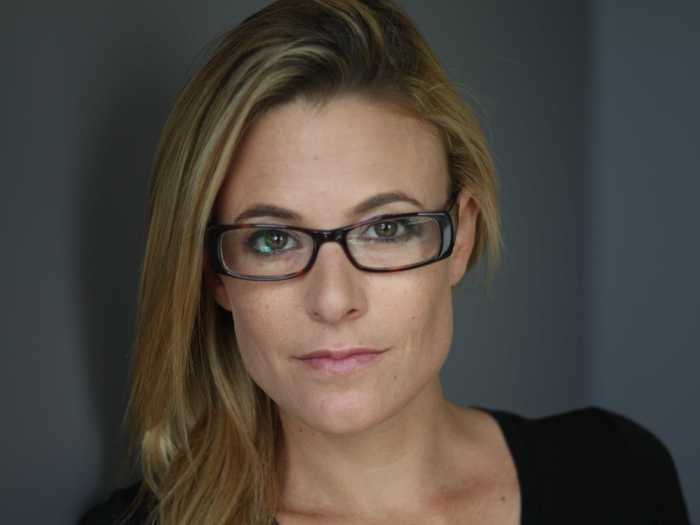
Position: Faculty member of the Department of Cognitive, Perceptual & Brain Sciences
Institution: University College London
Education: Ph.D in psychology and neuroscience from New York University; B.A. in economics and psychology
Nationality: Israeli
Sharot studies the neuroscience of emotion, social interaction, decision making, and memory. Specifically her lab studies how our experience of emotion impacts how we think and behave on a daily basis, and when we suffer from mental illnesses like depression and anxiety.
She's the author of the "The Optimism Bias: A Tour of the Irrationally Positive Brain" which presents research showing that humans believe their future selves will be better than the past or present. She asks: "Hope isn’t rational, so why are humans wired for it?"
Fun fact: She's a descendant of Karl Marx.
#36 Martin Hanczyc

Age: 42
Position: Associate Professor in the Department of Physics, Chemistry, and Pharmacy
Institution: University of Southern Denmark
Education: Ph.D in genetics from Yale University; bachelor's in biology from Pennsylvania State University
Nationality: American
To demonstrate how early life may have formed on Earth, Hanczyc makes chemical droplets, called "protocells," that behave like living cells. Specifically they behave like the first pre-life chemical compositions — stripped down versions of cell containing only the most fundamental chemicals of a cell.
In these droplets he can simulate how the chemical precursors to life became the cells we know today.
Fun fact: He's the founder of a vintage bicycle club chapter. He also speaks Italian and Danish.
#35 Rachel Armstrong
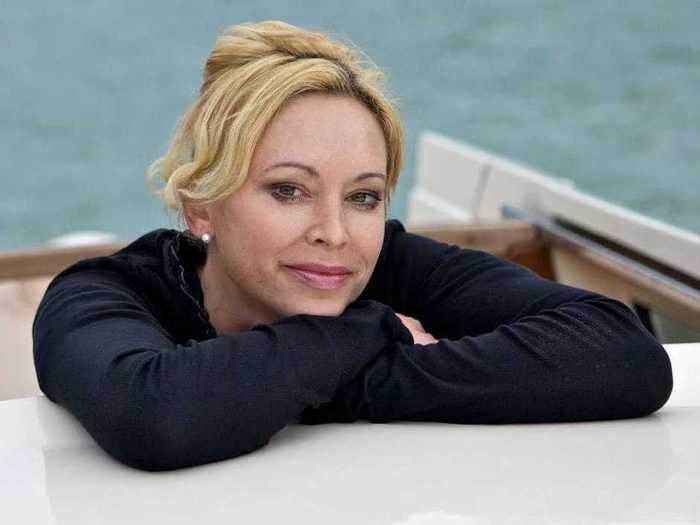
Age: 44
Position: Co-Director of architectural research group AVATAR
Institution: University of Greenwich
Education: Ph.D in architecture from University College London; Graduate degree in medicine and surgery from the University of Oxford; Undergraduate degree in medical sciences from the University of Cambridge
Nationality: British
Armstrong uses artificial cells that have life-like qualities (but are not fully alive) to create sustainable construction materials that can (hopefully) repair themselves after a crack, bend, or break.
She thinks this type of technology could be used to prevent Venice from sinking. And, these semi-living materials would also take up carbon dioxide (a potent greenhouse gas that drives climate change) from the atmosphere.
Fun fact: She enjoys writing science fiction.
#34 Ben Major
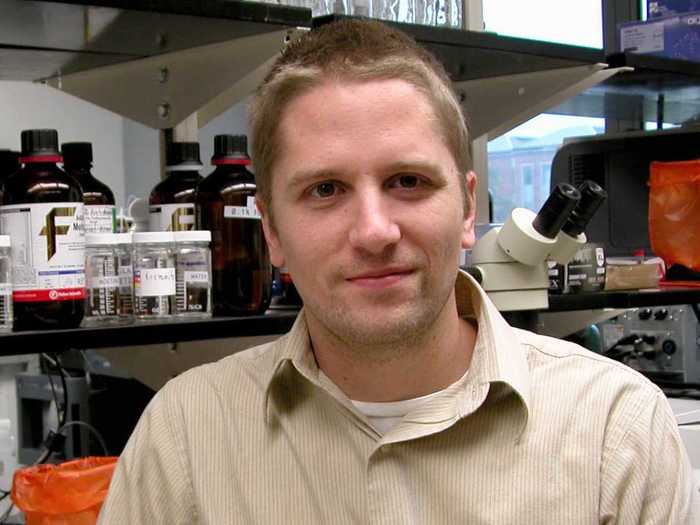
Age: 37
Position: Assistant Professor
Institution: University of North Carolina at Chapel Hill
Education: Ph.D. in oncological sciences from the Huntsman Cancer Institute at Utah University; B.S. in microbiology from Michigan State University
Major studies how cancer cells hijack specific signaling pathways to spread throughout the body, using drugs and genetic manipulation to probe the inner workings of these out-of-control cells. By comparing this data to similar information from normal cells, he can figure out how and why things go wrong in cancer.
Fun fact: He is married with three kids.
#33 Danielle Fong
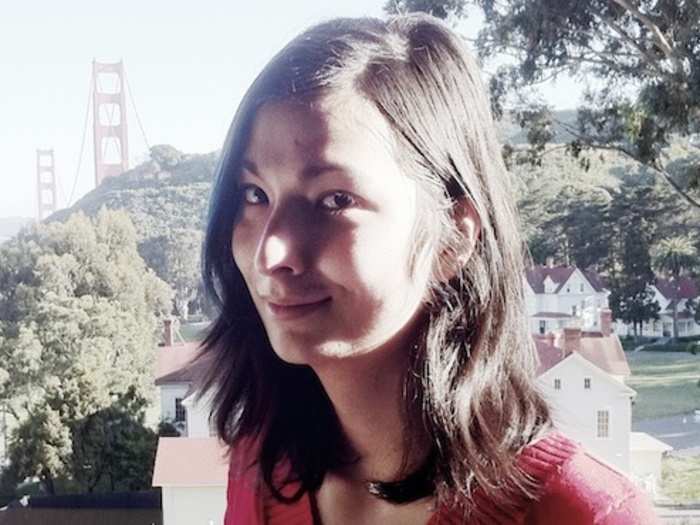
Age: 25
Post ion: Co-founder and Chief Scientist of LightSail Energy
Education: B.S. in physics and computer and science from Dalhousie University
Nationality: Canadian
At age 17, Fong began her Ph.D in plasma physics at Princeton University, but dropped out in 2007. Two years later, she founded LightSail Energy in Berkeley, California, a cleantech company that develops technologies for storing renewable energy, such as solar and wind power, so they can be used when needed.
Specifically they are reusing the wasted heat that is created when compressing air creates heat, which is absorbed, stored, and reused by mists of water.
Fun fact: She lives in a firehouse.
#32 Read Montague
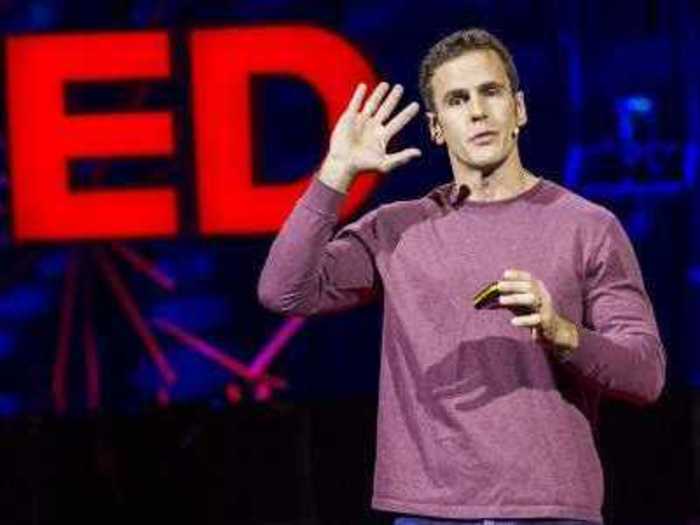
Age: Unknown
Position: Professor of physics at Virginia Tech; Director of Human Neuroimaging Laboratory at Baylor College of Medicine
Institution: Virginia Tech
Education: Ph.D in biophysics from the University of Alabama Birmingham; B.S. in mathematics from Auburn University
As director of the Roanoke Brain Study, Montague monitors brain activity while volunteers play games, view images, or interact with others, to understand how people make decisions at different times in their lives, and how this is related to the development of the brain, how well it works, and what happens when it doesn't.
Fun fact: He was a distinguished athlete at Auburn University and won the decathlon in the 1981 SEC Championship.
#31 Jyotsna Sharma
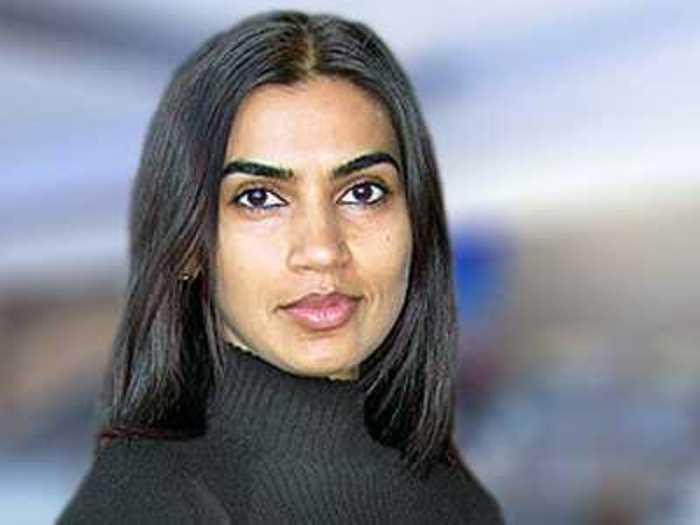
Age: Unknown
Position: Assistant professor of plant ecology & conservation
Institution: Texas Tech University
Education: Graduate degree in plant ecology from University of Missouri – Columbia; Bachelor’s degree in horticulture and business from the University of Arkansas — Fayetteville
Sharma's research focuses on the ecology and conservation of rare plants, particularly orchids. She studies their genes and proteins, and goes out in the field to study them. She is also interested in the symbiotic fungi that live on the roots of the leatherwood shrub.
#30 Ziad Obermeyer
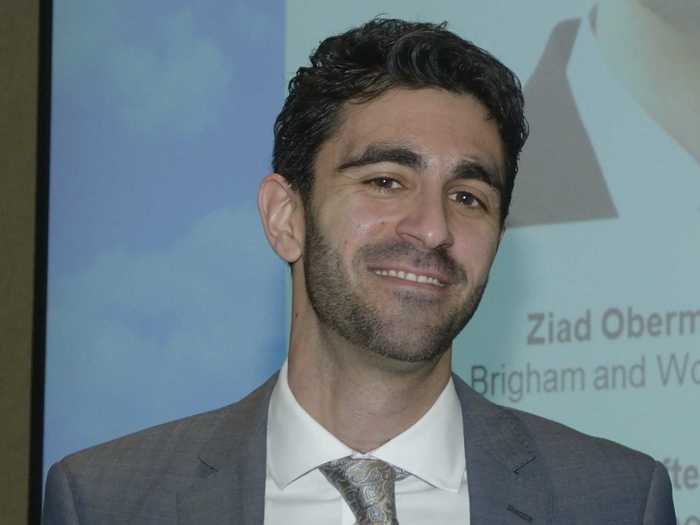
Age: 32
Position: Physician in the Department of Emergency Medicine at the Brigham & Women's Hospital and professor at Harvard Medical School
Institution: Brigham & Women's Hospital and Harvard Medical School
Education: M.D. from Harvard University; M.Phil. in the history and philosophy of science from the University of Cambridge; B.A. from Harvard College
Nationality: American
Obermeyer is an emergency medicine physician at Brigham & Women's Hospital in Boston. Besides practicing medicine, he researches population health outcomes to see how to improve health care in the United States and abroad.
In 2012 he recieved an NIH Director's Early Independence Award to examine why some people die unexpectedly after being seen and discharged from emergency rooms, so doctors can identify patients that are at high risk of dying after being discharged.
Fun fact: His brother and his fiancee live in Nicaragua, where they run surf and yoga retreats.
#29 Christina Fan
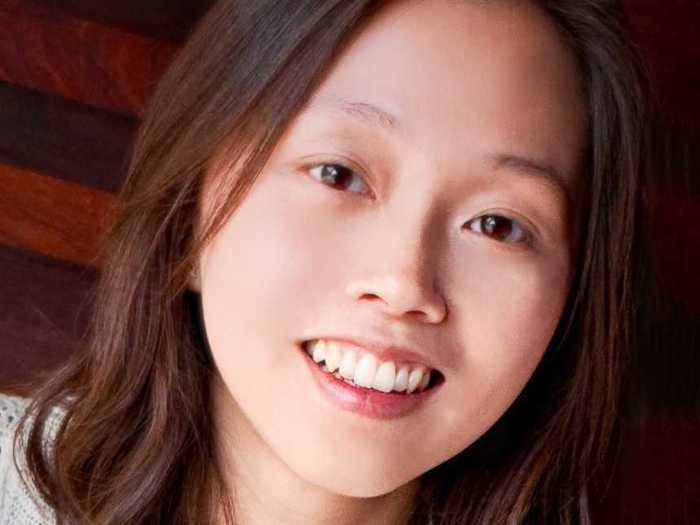
Age: 30
Position: Director of Technology Development at ImmuMetrix LLC
Education: Ph.D. in bioengineering from Stanford University; M.S. in bioengineering from Stanford University; B.S. in bioengineering from Columbia University
Fan previously worked on developing a safe and non-invasive way to spot Downs Syndrome and other genetic diseases in the womb. Downs syndrome is caused by an extra chromosome (the large chunks of DNA that make up your genome), and Fan developed a way to count the baby's chromosomes, allowing her to diagnose extra chromosomal diseases in the womb.
She's currently working on new molecular technologies to map the human immune system to help diagnose diseases. The screens have applications in cancer, organ transplants, auto immune diseases, vaccines, allergy, and asthma.
Fun fact: She has visited all seven continents, and is an orchestral flautist and pianist.
#28 John Dabiri
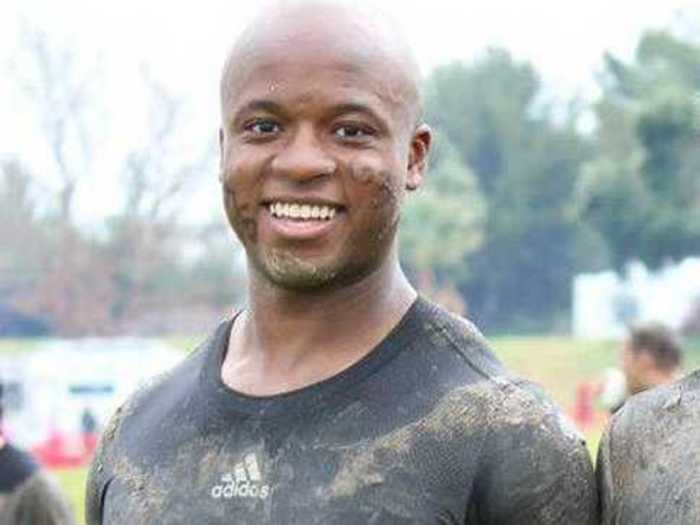
Age: 33
Position: Professor of aeronautics and bioengineering
Institution: Caltech
Education Ph.D is in bioengineering and M.S. in aeronautics from Caltech;
B.S.E. from Princeton University
Nationality: American
Dabiri studies biological fluid mechanics and wind energy — specifically how animals like jellyfish use water to move around. He also developed a mathematical model for placing wind turbines at an optimal distance from each other based on data from how fish schools move together in the water.
Fun fact: He won a MacArthur "genius grant" in 2010.
#27 Siobhan Pattwell
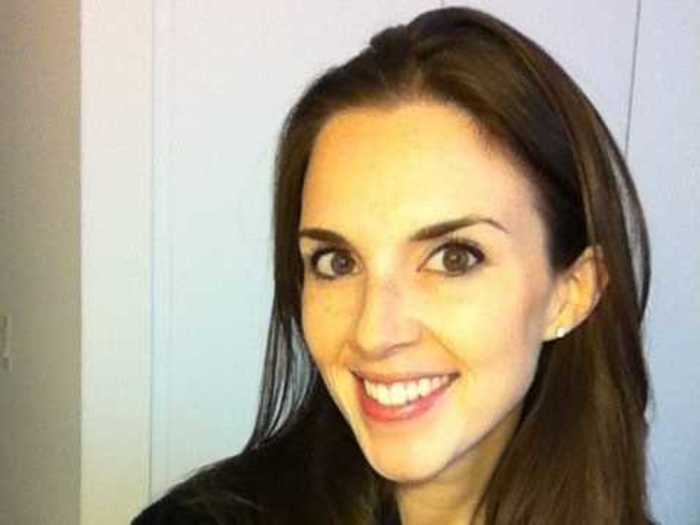
Age: 29
Position: Postdoctoral research fellow in neuroscience at Weill Cornell Medical College
Education: Ph.D in neuroscience from Cornell University; B.S. in neuroscience from Lafayette College
Nationality: American
Pattwell studies the development of the brain, particularly the neural circuits associated with fear, anxiety, and post-traumatic stress disorder using mice as a model. She's especially interested in how these change over time as the mouse grows older. She also wants to investigate the molecular pathways involved in brain tumors and neural cancers.
Fun fact: She loves shopping, running, puppies and cooking. She's also a born and bred Jersey girl who happens to be obsessed with country music.
#26 Juliana Machado Ferreira
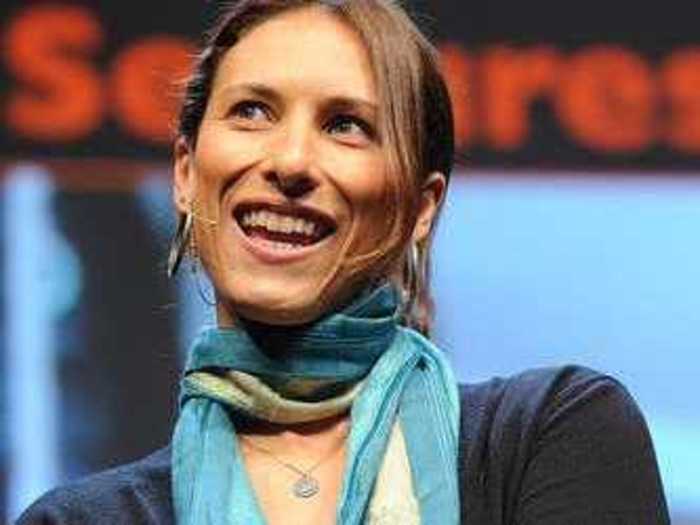
Position: Executive director of Freeland Brazil
Education: Ph.D, M.S., and B.S. from the University of Sao Paulo
Nationality: Brazilian
Ferreira calls herself a "forensic biologist" and is working to stop wildlife trafficking, when thousands of animals are removed from the wild and sold as pets. She also helps police when they deal with these crimes by using genetics to identify animals and where they originated.
Fun fact: She's kicked in doors while on wildlife trafficking raids, getting her the nickname "Dr. Foot On Door."
#25 Gabriel Victora
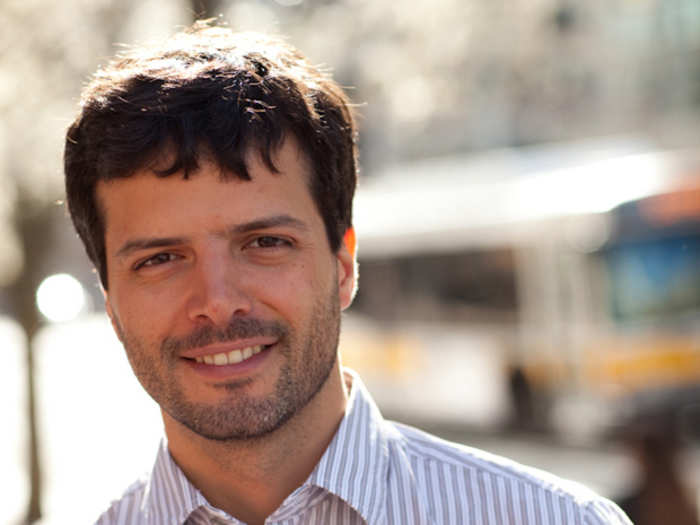
Age: 30s
Position: Principal Investigator and Whitehead Fellow
Institution: Whitehead Institute for Biomedical Research at MIT
Education: Ph.D. from New York University’s molecular oncology and immunology training program; M.S. in immunology from the University of São Paulo; M.S. and B.A. in classical piano from the Mannes College of Music
Nationality: Brazilian
Victora is researching the immune system cells that produce antibodies that protect us from infectious diseases. These antibodies are highly specific to tiny pieces of proteins called peptides. To get this specific, the antibodies go through a long process of mutation and genetic copy and pasting.
His research could help scientists develop more effective vaccines and treatments for allergies and autoimmune diseases, which occur when our bodies make antibodies wrong, and they end up attacking the body itself.
Fun fact: He was a professional concert pianist before becoming a scientist.
#24 Ariel Garten
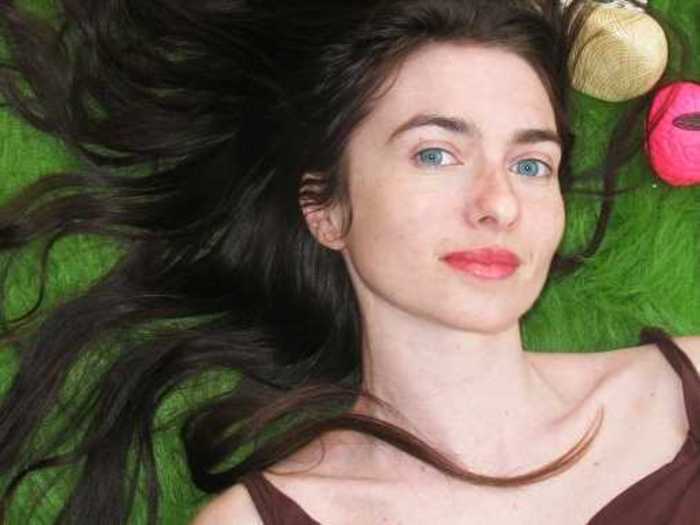
Age: 33
Position: CEO and head of research at InteraXon
Education: B.S. in neuroscience from the University of Toronto
Nationality: Canadian
By tracking brain activity, Garten creates products to improve people's cognition and reduce stress. Her company just debuted Muse, a brain-sensing headband that shows your brain's activity on a smartphone or tablet. The goal is to eventually let you control devices with your mind.
Fun fact: She runs her own fashion design business and has opened fashion week runways with shirts featuring brainwaves.
#23 Albert Mach
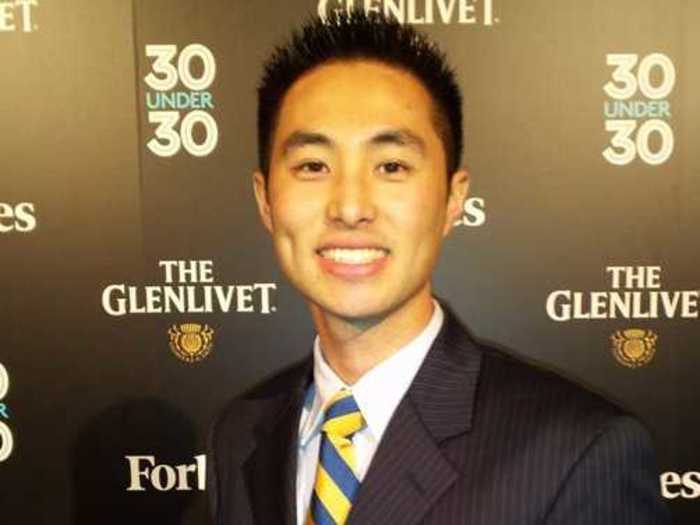
Age: 26
Position: Bio-engineer and senior scientist
Institution: Integrated Plasmonics Corporation
Education: Ph.D. in bioengineering from U.C.L.A.; B.S. in bioengineering from U.C. Berkeley
As a graduate student Mach designed tiny chips that can separate out cells from fluids and perform tests using blood, pleural effusions, and urine to detect cancers and monitor them over time.
He's currently working in super-secret "stealth mode" for the nanotechnology company Integrated Plasmonics Corporation, so we can't tell you what he is researching. The company just raised $3.5 Million, announced in SEC Fillings on Feb.17.
Fun fact: He loved playing with LEGOs as a kid.
#22 Aditi Shankardass
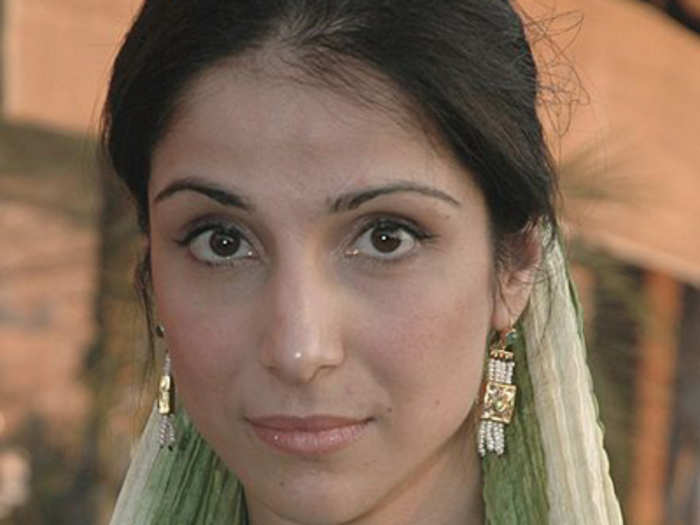
Position: Neuroscientist
Institution: Boston Children's Hospital, Harvard Medical School
Education: B. Sc in physiology from King's College London; M.Sc. in neurological science from University College London; Ph.D in cognitive neuroscience from the University of Sheffield
Nationality: British
Aditi Shankardass is a renowned pediatric neurologist who uses real-time brain recordings to accurately diagnose children with developmental disorders and the underlying neurological causes of dyslexia.
Fun fact: Her father is a lawyer who represents celebrities. She enjoys dancing, acting, and painting.
#21 Sua Myong
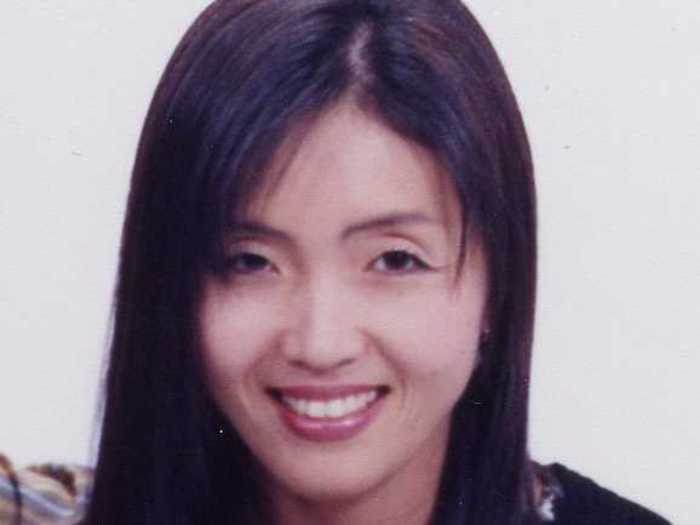
Position: Bio-engineer and assistant professor
Institution: University of Illinois, Urbana Champaign
Education: Ph.D in nutrition, University of California, Berkeley; B.S in molecular cell biology, University of California, Berkeley
Myong uses a special imaging technique that allows her to see single molecules, and their cellular processes, at a very detailed level. A fluorescent dye attached to a molecule glows brighter depending on how close it is to the protein that is interacting with that molecule.
Using this technique she can watch proteins as they move through cells as they go about their business of unwinding strands of DNA. Her discoveries in this process help us understand how DNA is copied when cells divide and how that process goes wrong, which can result in mutations.
Fun fact: She uses Twizzlers as a teaching tool to mimic the unwinding double helix of DNA.
#20 Lee Cronin
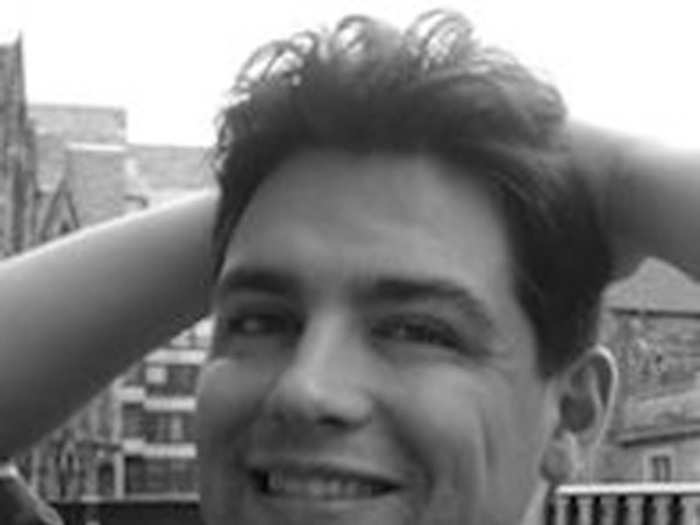
Age: 39
Position: Professor of Chemistry
Institution: University of Glasgow
Education: D.Phil. from the University of York; B.S in chemistry from the University of York
Nationality: British
Cronin develops new technologies based on complex chemical reactions. Right now, for example, he's working on a 3D-printer that can print molecules, instead of objects, so in the future we may be able to print our own medicine.
"What Apple did for music, I'd like to do for the discovery and distribution of prescription drugs," Cronin said in a 2012 TED Talk. Cronin is also trying to make living things from cells made of inorganic chemicals (so, chemicals without the atoms, hydrogen, and carbon) in order to show that biology isn't the only way life evolved on Earth.
Fun fact: He speaks German.
#19 Thomas Marshburn
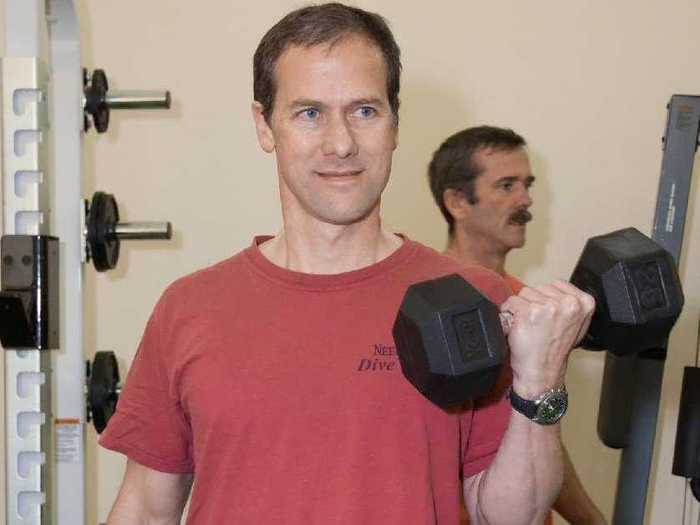
Age: 52
Position: Currently a flight engineer with the Expedition 34 crew on the International Space Station
Institution: NASA
Education: M.S. in medical science from the University of Texas; M.D. from Wake Forest University; M.S. in engineering physics from the University of Virginia; B.S. in physics from Davidson College
Nationality: American
Marshburn arrived on the International Space Station in December 2012, along with three other crew members. During his five months onboard the orbiting outpost, Marshburn will help in monitoring more than 100 experiments (including a test to see how fish fare in zero gravity) and perform regular maintenance duties.
Marshburn was a flight surgeon with NASA before training to become an astronaut in 2004. His first visit to the space station was in 2009 when he spent 11 days docked with spacecraft.
Fun fact: He backpacked all the way from Canada to Mexico when he was 19 years old.
#18 Maria Spiropulu
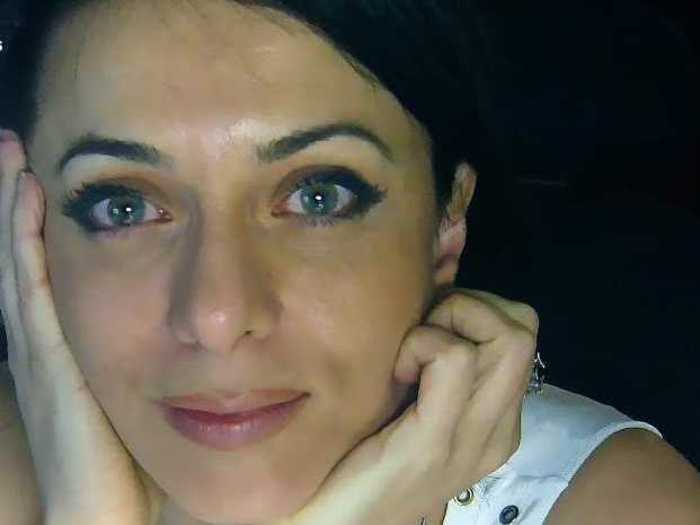
Age: 42
Position: Experimental particle physicist and professor of physics at Caltech
Institution: Caltech
Education: Ph.D in particle physics from Harvard University; Bachelor’s in physics from the Aristotle University of Thessaloniki
Nationality: Greek
Spiropulu develops experiments to search for dark matter and other theories that go beyond the Standard Model, which describes how the particles we know of interact. Her work is helping to fill in holes and deficiencies in that model. She works with data from the Large Hadron Collider.
Fun fact: She's the great-grandchild of Enrico Fermi in Ph.D lineage — which means her graduate adviser's adviser's adviser was the great Enrico Fermi who played a key role in the development of basic physics.
#17 Isaac Kinde
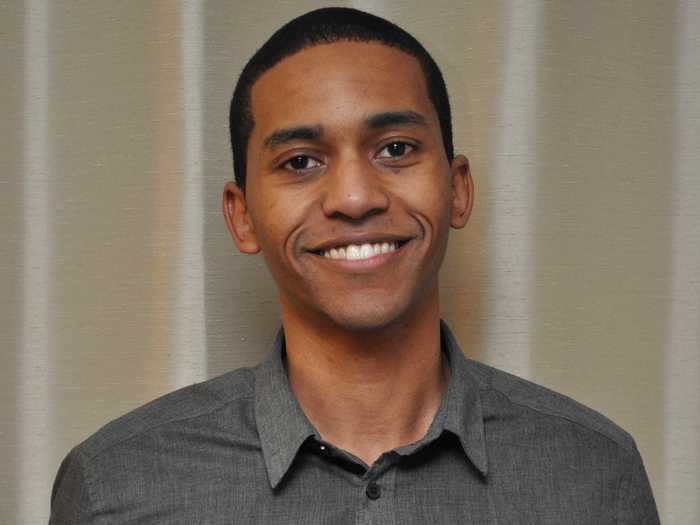
Age: 29
Position: Graduate/medical student
Institution: Johns Hopkins School of Medicine
Education: Current M.D./Ph.D. student at Johns Hopkins School of Medicine; B.S. in biological sciences from the University of Maryland, Baltimore County
Nationality: American, first-generation of Ethiopian and Eritrean descent
As a graduate student at Johns Hopkins, Kinde is working on improving the accuracy of genetic sequencing so that it can be used to diagnose cancer at an early stage in a simple, noninvasive manner. Sequencing improvements can also be applied to pre-natal genetic testing and personalized therapeutics — for example scanning your genes to improve treatment outcomes based on your individual mutations.
In 2007 he worked with Bert Vogelstein, who just won the $3 million Breakthrough Prize in Life Sciences.
Fun fact: He's an avid biker, coffee drinker and occasional video game player.
#16 Michelle Khine

Age: 36
Position: Biomedical engineer, professor at UC Irvine, and co-Founder at Shrink Nanotechnologies
Institution: University of California, Irvine and Shrink Nanotechnologies
Education: Ph.D. in bioengineering from UC Berkeley; M.S. in mechanical engineering from UC Berkeley; B.S. in mechanical engineering from UC Berkeley
Nationality: American
Khine uses Shrinky Dinks — a favorite childhood toy that shrinks when you bake it in the oven — to build microfluidic chips to create affordable tests for diseases in developing countries.
These chips can be printed out easily, then baked to shrink them down to size. They are cheaper and easier to make than traditional microfluidic chips and are entirely customizable.
Fun fact: She set a world record speed of 38.4 mph for a human-powered vehicle as a mechanical engineering grad student at UC Berkeley in 2000.
#15 Ragnar Stroberg
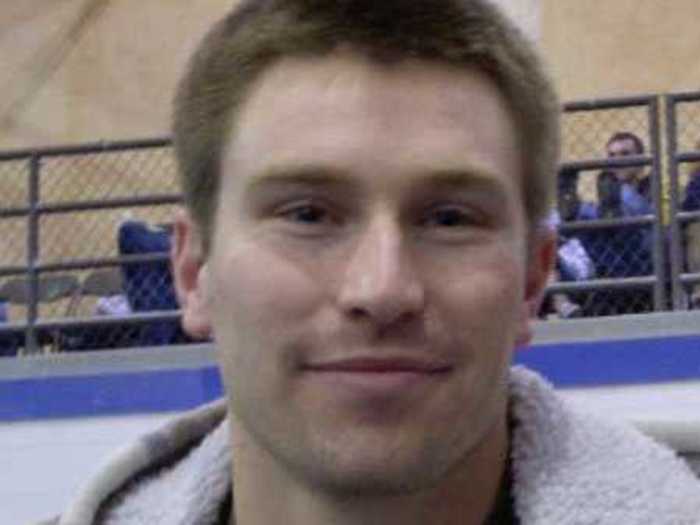
Age: 26
Position: Experimental nuclear physicist and grad student at Michigan State University
Institution: Michigan State University
Education: Current Ph.D. student at Michigan State University; M.S. in physics from Michigan State University; B.S. in nuclear engineering from UC Berkeley
Nationality: American
Stroberg studies the structure of the nucleus of atoms (the part made of protons and neutrons) by smashing atoms together at high speeds and measuring the gamma-rays that are emitted. The spectrum of gamma rays that comes out — unique to each atom made by the crash — provides information about how protons and neutrons interact with each other inside the nucleus.
Fun fact: When he's not in the lab, he's probably cycling or home brewing. He also enjoys long walks on the beach, soft animals, and talking about his feelings.
#14 Sebastian Seung
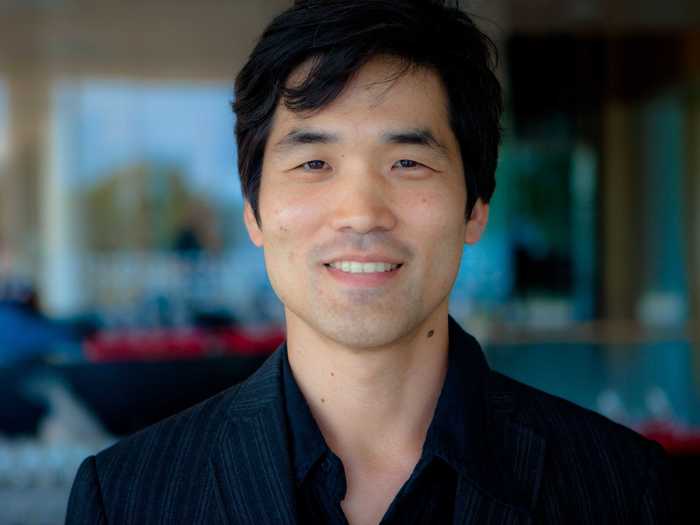
Position: Computational neuroscientist, physicist, and professor of computational neuroscience
Institution: Massachusetts Institute of Technology
Education: Ph.D. in physics from Harvard; B.A. in physics from Harvard
Nationality: Korean-American
Dr. Seung is blazing a trail in the hot new field of connectomics, which studies the wiring of the brain in detail. His MIT lab is researching and inventing technologies that can identify the connections between the brain's neurons. They're planning to thin-slice a brain and trace each neural pathway from slice to slice, creating a map of the brain and a way to visualize how the mind works.
Fun fact: His lab has embraced citizen scientists through the development of a game called EyeWire, which asks users to analyze brain images as a apart of a 3D jigsaw puzzle.
#13 Lucianne Walkowicz
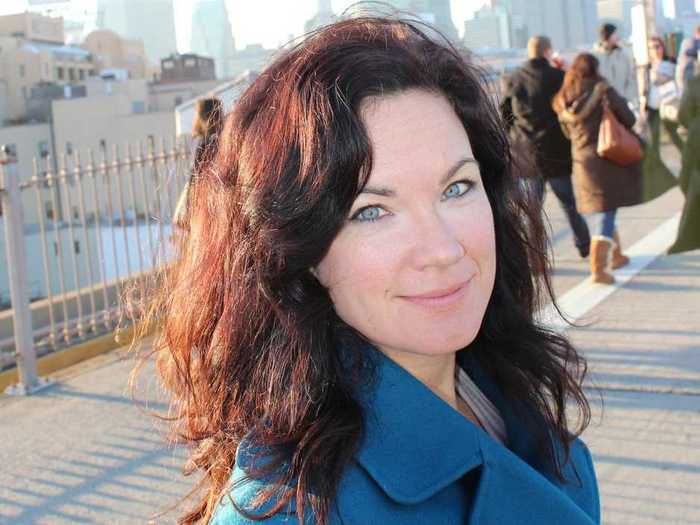
Age: 34
Position: Astrophysicist; Henry Norris Russell Fellow
Institution: Princeton University
Education: Ph.D. in astronomy from the University of Washington; M.S. in astronomy from the University of Washington; B.S. in physics from Johns Hopkins University
Nationality: American
Walkowicz studies the magnetic fields of stars, how these fields change over time and the different characteristics of the stars.
She's also interested in how those magnetic fields impact the planets orbiting them, specifically the planet's ability to host life. She uses data from NASA's Kelper mission, which scans 150,000 stars every minute, to look for these exoplanets.
Fun fact: She's also an artist, creating everything from comics to oil paint to sound. Check out some examples.
#12 Zeresenay (Zeray) Alemseged
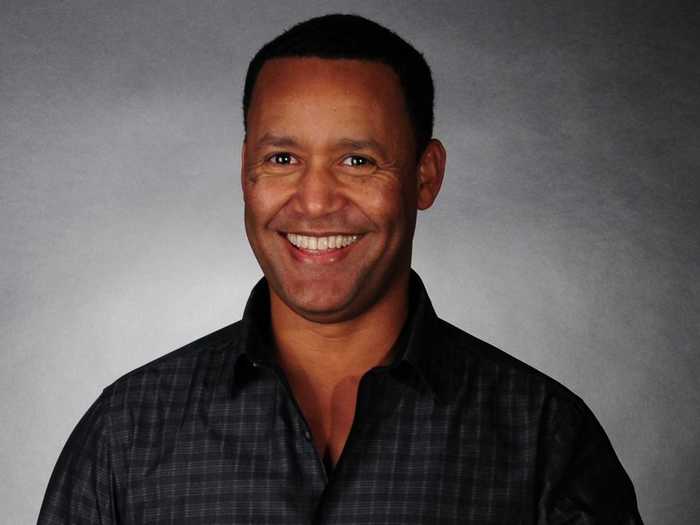
Age: 43
Position: Paleoanthropologist and chair and senior curator of Anthropology at the California Academy of Sciences
Institution: California Academy of Sciences
Education: Ph.D. in paleoanthropology from Pierre and Marie Curie University; M.Sc. in evolution from the University of Montpellier II; B.Sc. in geology from Addis Ababa University
Nationality: Ethiopian
Zeresenay Alemseged is an Ethiopian paleoanthropologist who studies the origins of humanity in the Ethiopian desert, focusing on the emergence of childhood and tool use. His most exciting find was the 3.3-million-year-old bones of Selam, a 3-year-old girl from the species Australopithecus afarensis.
By studying these bones, Alemseged is helping us determine the timeline of human evolution — how we came to be and spread across the Earth, 7 billion strong.
Fun fact: He speaks five languages.
#11 Quyen Nguyen
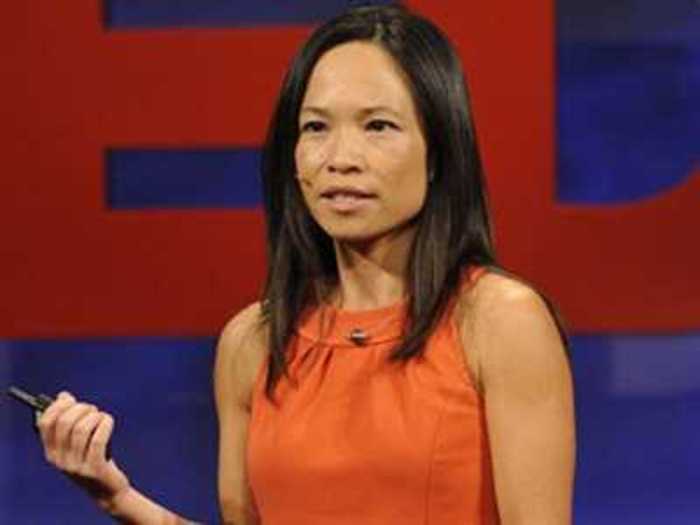
Position: Doctor and professor of surgery and director of the Facial Nerve Clinic at the University of California, San Diego.
Institution: University of California, San Diego
Education: M.D./Ph.D. from Washington University, School of Medicine; B.S. in psychology/biology from University of Southern California.
Nguyen is developing ways to guide surgeons during tumor removal surgery by using fluorescent compounds to make tumor cells — and just tumor cells — glow during surgery, which helps surgeons perform successful operations and get more of the cancer out of the body.
She's using similar methods to label nerves during surgery to help doctors avoid accidentally injuring them.
Fun fact: She is fluent in French and Vietnamese.
#10 Nathan Wolfe
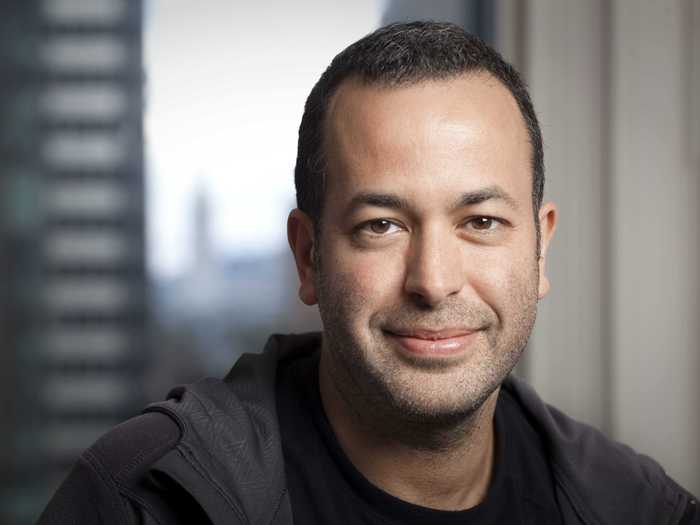
Age: 42
Position: Virologist; founder and CEO of Metabiota; founder and director of Global Viral
Institution: Metabiota, Global Viral, Stanford University
Education: D.Sc. in immunology & infectious diseases from Harvard University; M.A. in biological anthropology from Harvard University; B.A. in human biology from Stanford University
Nationality: American
Wolfe has devoted his life to fighting worldwide disease pandemics with an early-warning system that predicts and controls disease outbreaks before they kill millions. He is the founder and director of Global Viral, an international non-governmental organization that monitors and prevents emerging infectious diseases, as well as the founder and CEO of Metabiota, a for-profit company that specializes in microbiological research. He is also a visiting professor at Stanford.
Fun fact: He has spent more than eight years conducting biomedical research in both sub-Saharan Africa and Southeast Asia.
#9 Nina Tandon
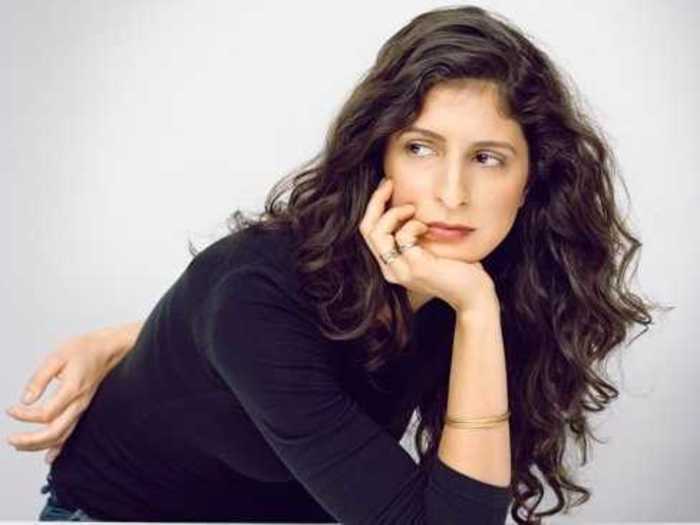
Age: 33
Position: Electrical and biomedical engineer at Columbia's Laboratory for Stem Cells and Tissue Engineering; Adjunct professor of Electrical Engineering at the Cooper Union
Institution: Columbia University
Education: MBA from Columbia; Ph.D. in biomedical engineering from Columbia; M.S. in Bioelectrical engineering from MIT; B.S. in electrical engineering from Cooper Union
Nationality: American
Tandon uses electrical signals and environmental manipulations to grow artificial tissues for transplants and other therapies. For example, she worked on an electronic nose used to "smell" lung cancer and now she's working on growing artificial hearts and bones.
Fun fact: In her spare time, the Ted Fellow does yoga, runs, backpacks, and she likes to bake and do metalsmithing. Her nickname is "Dr. Frankenstein."
#8 Noah Wilson-Rich
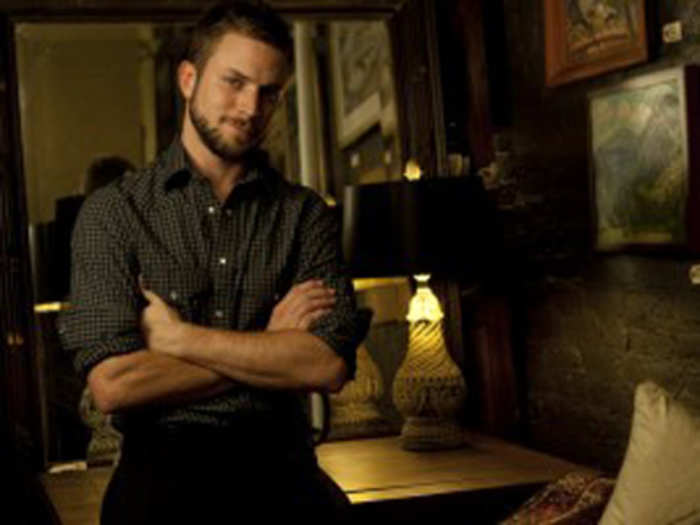
Age: 30
Position: Behavioral ecologist; Founder and chief scientific officer at Best Bees Company
Education: Ph.D. in biology from Tufts; B.S. in biology from Northeastern University
Wilson-Rich studies honey bees and their health — what diseases they get and why. Bees are important pollinators, not just for flowers but also for crops like almonds and broccoli. They are currently being ravaged by a mysterious disease called colony collapse disorder.
An urban farmer, Wilson-Rich founded Best Bees in his Boston apartment to give Bostonians the resources to own and care for their own beehives. The profits from Best Bees funds Wilson-Rich's research on bees.
Fun fact: "4 Life" by Nicki Minaj is his personal anthem.
#7 Clio Cresswell
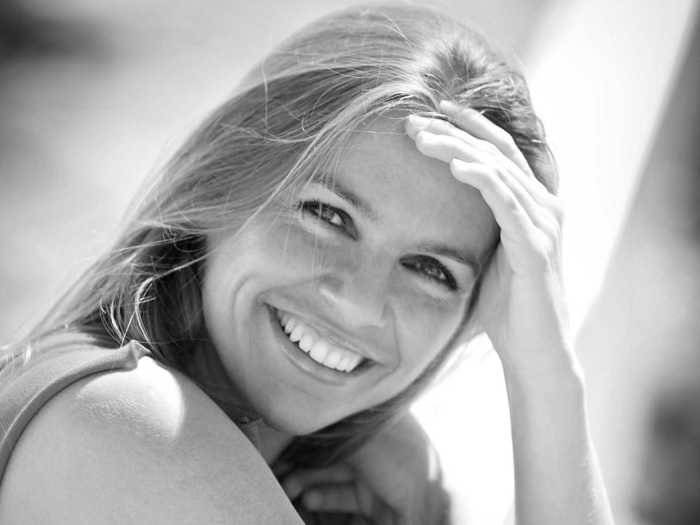
Age: 36
Position Mathematician and university lecturer
Institution: The University of Sydney
Pedigree: Ph.D. and B.S. in math from the University of New South Wales
Nationality: Australian
The author of "Mathematics and Sex," Cresswell uses math to understand how humans should find their partners. She came up with what she calls the "12 Bonk Rule," which means that singles have a greater chance of finding their perfect partner after they date 12 people.
Fun fact: If she's not at her desk brain working, you'll find her at the gym either bench pressing her body weight or hanging upside down from the gym rings.
#6 Amy Mainzer
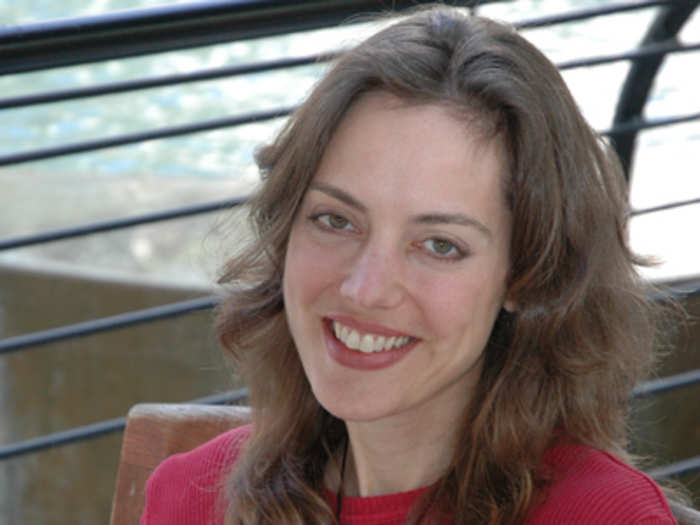
Age: 30s
Position: Astrophysicist and deputy project scientist at the wide-field infrared survey explorer
Institution: NASA's Jet Propulsion Laboratory
Education: Ph.D. in astronomy from UCLA; M.S. in astronomy from California Institute of Technology; B.S. in physics from Stanford
Nationality: American
Mainzer built the sensor for the Spitzer Space Telescope, a NASA infrared telescope that's been going strong for the last 10 years in deep space. Now she's the head scientist for a new-ish telescope, using it to search the sky for asteroids and comets.
Her job is to better understand potentially hazardous asteroids, including how many there are as well as their orbits, sizes, and compositions.
Fun fact: Her idea of a good time is to do roller disco in a Star Trek costume.
#5 Jean-Baptiste Michel
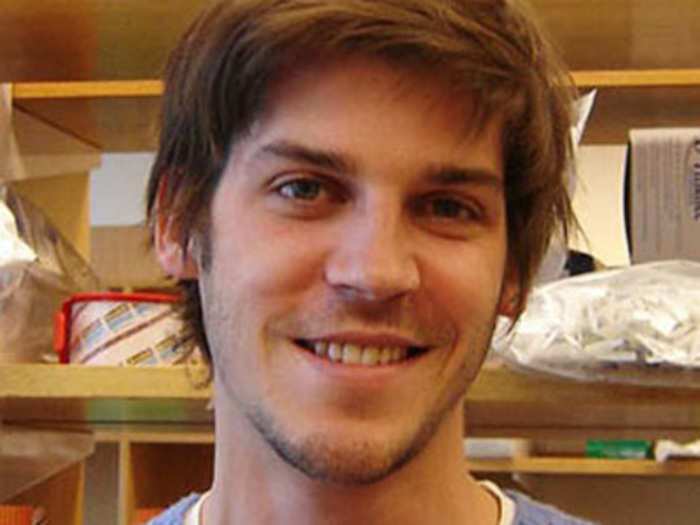
Age: Early 30s
Position: Mathematician, engineer, and researcher
Institution: Harvard University and Google
Nationality: French-Mauritian
Education: Ph.D. in systems biology at Harvard University; MS in applied mathematics at Harvard; engineering degree from Ecole Polytechnique.
Jean-Baptiste Michel is a mathematician and engineer who's interested in analyzing large volumes of quantitative data to better understand our world.
For example, he studied the evolution of human language and culture by analyzing millions of digitized books. He also used math to understand the evolution of disease-causing cells, violence during conflicts, and the way language and culture change with time.
Fun fact: He likes "Modern Family" and "Parks and Recreation," he listens to the Black Keys and Feist, and his favorite restaurant in New York City is Kyo Ya.
#4 Heather Knight
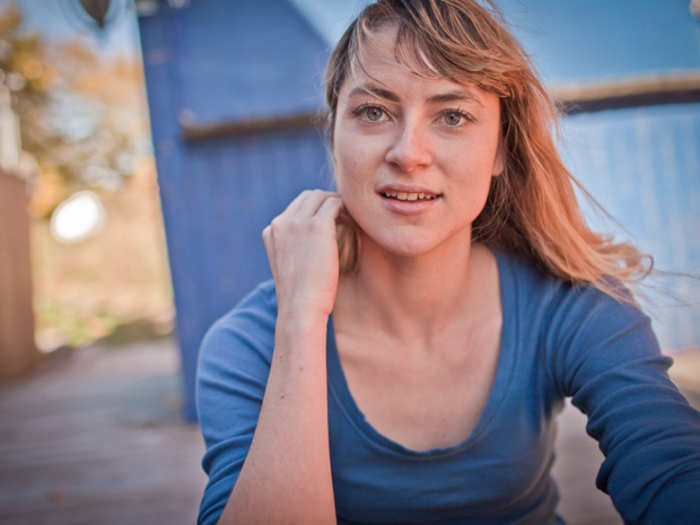
Position: Graduate student and founder of Marilyn Monrobot
Institution: Carnegie Mellon
Education: Current Ph.D. student at Carnegie Mellon; M.S in electrical and mechanical engineering from MIT; B.S. in electrical and mechanical engineering from MIT
Heather Knight loves robots — and she wants you to love them too. She founded Marilyn Monrobot, which creates socially intelligent robot performances and sensor-based electronic art. Her robotic installations have been featured at the Smithsonian-Cooper Hewitt Design Museum, LACMA, and PopTech.
In her graduate work she studies human-robot interaction, personal robots, theatrical robot performances, and designs behavior systems.
Fun fact: When she's not building robots, she likes salsa dancing, karaoke, traveling, and film festivals.
#3 Carl Schoonover
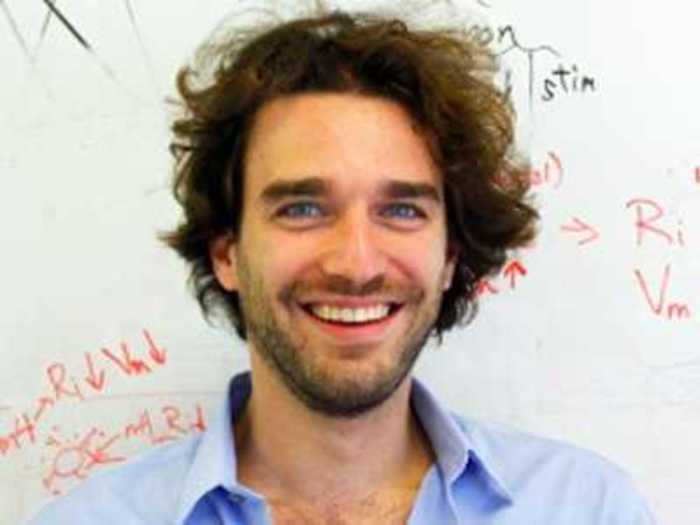
Age: 29
Position: Graduate student and co-founder of NeuWrite
Institution: Columbia University
Education: Current Ph.D. student in neuroscience at Columbia University; B.A in philosophy from Harvard College
Nationality: French
Schoonover studies the sense of touch and is particularly interested in how information propagates from one area of the brain to another. He uses animal models to study the anatomy and electric signals in the brain.
He's also the co-founder of NeuWrite, a collaborative group for scientists and writers; the author of "Portraits of the Mind"; and the host of a radio show which focuses on opera, classical music, and their relationship to the brain.
Fun fact: His favorite meal is 2:00 a.m. takeout Chinese when he's in the middle of an experiment.
#2 Lisa Randall
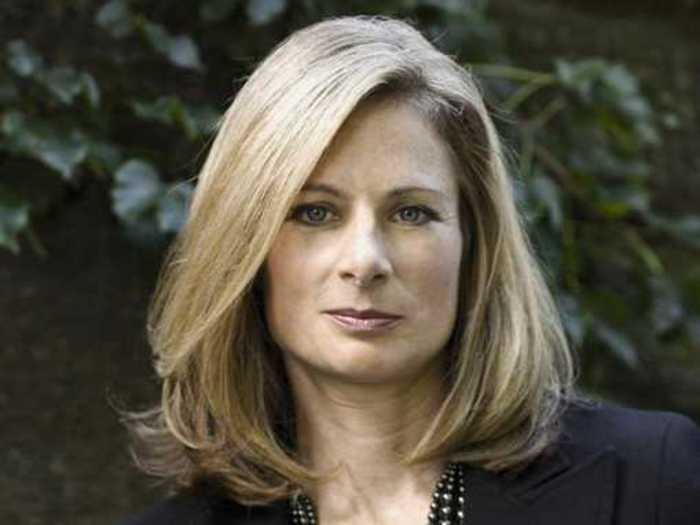
Age: 50
Position: Physicist and professor
Institution: Harvard University
Education: Ph.D. in theoretical particle physics from Harvard University; B.A. in physics from Harvard University
Nationality: American
Randall is considered to be one of the nation's foremost theoretical physicists, with an expertise in particle physics and cosmology. The math whiz from Queens is best known for her models of particle physics and study of extra dimensions.
Fun fact: She wrote the lyrics to an opera that premiered in Paris and has an eclectic taste in movies.
#1 Bobak Ferdowsi
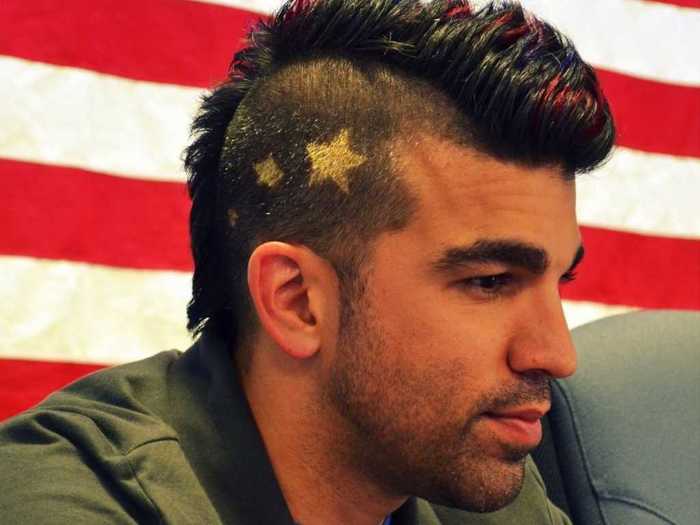
Age: 33
Position: Systems engineer and flight director for the Mars Curiosity rover
Institution: NASA's Jet Propulsion Laboratory
Education: M.S. from MIT; B.S. from University of Washington
Nationality: Iranian-American
Ferdowsi gained international fame when the Mars Curiosity rover landed on the surface of Mars last August. Since then, the space hunk has become an Internet sensation, gaining more than 50,000 followers on Twitter, multiple wedding proposals from women, and the unofficial title of NASA's sexy "Mohawk Guy."
He's most known for this star-and-stripes mohawk (which he debuted for the Curiosity landing), but changes his hairstyle frequently.
And sorry ladies, but he has a girlfriend.
Fun fact: He a major Star Trek fan.
Learn more about all of our sexiest scientists.
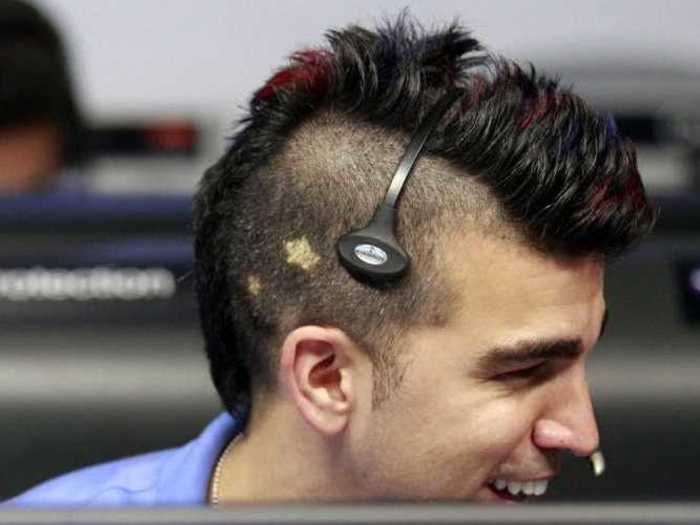
Popular Right Now
Popular Keywords
Advertisement